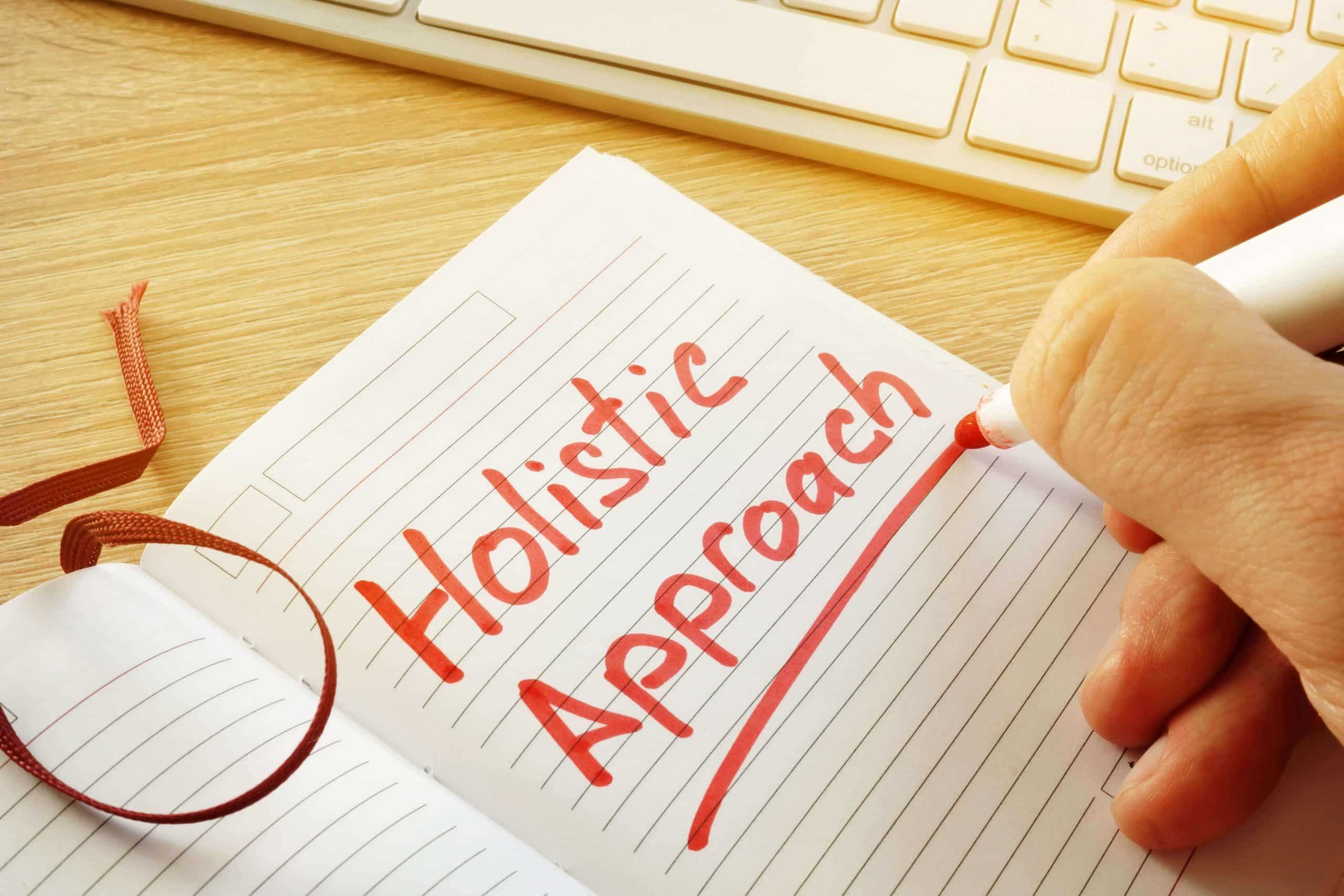Medically Reviewed by Dr. Mohammed Saeed, MD.
Holistic treatment is a healing approach that considers the whole person, mind, body, emotions, and spirit, rather than treating symptoms in isolation. People in recovery are more than their addictions and symptoms. Getting clean is essential to addiction recovery, but only beating the physical aspects of addiction does little to keep one “on the wagon.”
Using a holistic approach for addiction recovery addresses the immediate physical symptoms of withdrawal and addiction but then goes deeper to understand why a person is using drugs and alcohol. The reasons are different for everyone — for some, it is an underlying trauma they want to forget, while others self-medicate to deal with depression or other mental illnesses.
Benefits of Holistic Treatment For Addiction
Holistic addiction therapy seems a simple addition to a daily routine, but the return on investment can be huge. The most significant benefits most people will reap are:
Relapse prevention – As holistic recovery treatments treat the whole person, it addresses the reasons for the addiction and the addiction itself. Since some of the root causes of the addiction are uncovered, the patient is better able to understand — and hopefully control — their cravings and manage their triggers. Holistic therapies help those in recovery feel emotionally balanced and shift their cravings into more positive outlets.
Addressing mental issues – The holistic approach benefits the mind by raising awareness about the addiction and coping with distressing thoughts and emotions through behavioral therapy programs or mindfulness training.
Stress management skills – Stress is the root cause of most emotional issues that lead many toward substance abuse. Holistic addiction therapies help reduce stress healthily, including physical exercise, good nutrition, and relaxation techniques. By managing stress, holistic addiction therapies can manage the cravings for drugs or alcohol.
Life skills – An important part of a holistic approach is relearning basic life skills to manage everyday living, such as problem-solving and creative thinking, time management and organizational skills, conflict management, and basic financial management.
Better overall health – It’s hard to get better if you don’t feel good. By improving the health of mind, body, and spirit, those in recovery will feel fewer urges to abuse substances. The holistic approach encourages people to stick to healthy lifestyle habits, such as following a healthy diet, maintaining a regular exercise routine, and spending quality time with family and friends. Some of the following holistic therapies may be a part of a holistic recovery program: yoga and massage, nutritional or dietary counseling, medical management of addiction symptoms and any underlying conditions, acupuncture/acupressure, or exercise programs.
Strengthened interpersonal skills – Family therapy, group counseling, or support groups will go a long way to help repair relationships with loved ones, friends, and co-workers.
A better and balanced outlook on life – Taking the time to learn about your strengths and weaknesses elevates your sense of self-esteem. Perfecting new skills boosts confidence and a sense of self worth.
A holistic approach to addiction treatment teaches how to make incremental lifestyle changes leading to full mental and physical health. Perseverance will put those in recovery safely on the road to a clean and sober, relapse-free life.
Holistic recovery doesn’t look the same for everyone. Therapists must take the time needed to get to know the patient so that they can tailor an individualized program for maximum effectiveness. Some examples of holistic methods that may be offered along with conventional behavior therapies are art, music, or dance therapy; yoga; nutritional therapy; aromatherapy; meditation and mindfulness; and massage therapy. So, there is something for everyone.
Into Action Recovery Centers takes pride in providing a high level of treatment and a holistic approach to recovery for those who suffer from addiction. Our comfortable facility is designed with the client’s needs foremost in mind. Our staff includes master’s level counselors, licensed chemical dependency counselors, 24-hour nursing professionals, a staff psychiatrist, a staff chef, and direct care personnel. Our counseling staff provides individualized treatment and care for our clients with an emphasis on tailoring treatment to the specific needs of each individual. Additionally, our staff provides family counseling, relapse prevention, life skills, and grief and trauma counseling.
Into Action Recovery Centers provides an abstinence-based program and all of our staff members have a strong understanding of the recovery process through personal experience. We are passionate about sharing the process involved in living a drug and alcohol-free life. We offer free aftercare for the men who complete our program and have a strong alumni network that remains active in the community. We also offer other amenities such as dietician-prepared meals, mindfulness-based meditation training, outings, and fitness training.




